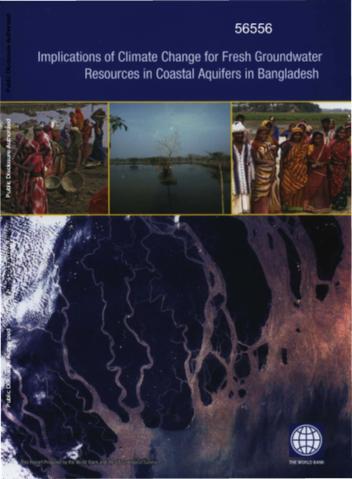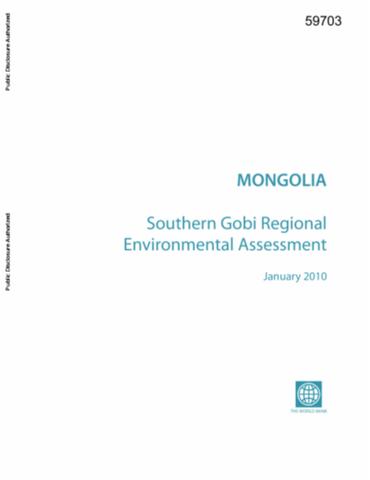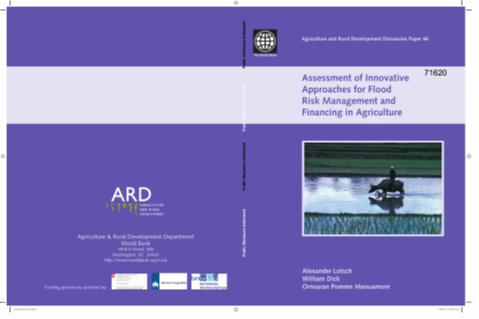The World Bank is a vital source of financial and technical assistance to developing countries around the world. We are not a bank in the ordinary sense but a unique partnership to reduce poverty and support development. The World Bank Group has two ambitious goals: End extreme poverty within a generation and boost shared prosperity.
- To end extreme poverty, the Bank's goal is to decrease the percentage of people living on less than $1.25 a day to no more than 3% by 2030.
- To promote shared prosperity, the goal is to promote income growth of the bottom 40% of the population in each country.
The World Bank Group comprises five institutions managed by their member countries.
The World Bank Group and Land: Working to protect the rights of existing land users and to help secure benefits for smallholder farmers
The World Bank (IBRD and IDA) interacts primarily with governments to increase agricultural productivity, strengthen land tenure policies and improve land governance. More than 90% of the World Bank’s agriculture portfolio focuses on the productivity and access to markets by small holder farmers. Ten percent of our projects focus on the governance of land tenure.
Similarly, investments by the International Finance Corporation (IFC), the World Bank Group’s private sector arm, including those in larger scale enterprises, overwhelmingly support smallholder farmers through improved access to finance, inputs and markets, and as direct suppliers. IFC invests in environmentally and socially sustainable private enterprises in all parts of the value chain (inputs such as irrigation and fertilizers, primary production, processing, transport and storage, traders, and risk management facilities including weather/crop insurance, warehouse financing, etc
For more information, visit the World Bank Group and land and food security (https://www.worldbank.org/en/topic/agriculture/brief/land-and-food-security1
Resources
Displaying 4681 - 4685 of 4907Implications of Climate Change for Fresh Groundwater Resources in Coastal Aquifers in Bangladesh
The objective of this study is to improve understanding of the implications of climate change for the groundwater systems in coastal Bangladesh. This is achieved by: (a) obtaining available geologic, hydrologic, and geochemical information on coastal aquifers of Bangladesh; (b) developing groundwater flow and salt transport models representing general features and conditions along the coast of Bangladesh; and (c) simulating potential changes in the groundwater systems due to various aspects of human activity and climate change.
Cambodia - Law on Expropriation
"Article 1: This law aims to define an expropriation in the Kingdom of Cambodia by defining the principles, mechanisms, and procedures of expropriation, and defining fair and just compensation for any construction, rehabilitation, and public physical infrastructure expansion project for the public and national interests and development of Cambodia."
Land Acquisition and Involuntary Resettlement Policy Framework
About the Belize SIF: "The Belize Social Investment Fund (BSIF) was established in 1996 as a statutory body under the auspices of the Ministry of Economic Development which is mandated by law to work with the Government of Belize in the implementation of programs and projects aimed at reducing poverty in Belize. The BSIF responds to the basic human needs of the poorest of the poor in Belize in an efficient, transparent, and ethnically sensitive manner utilizing an approach that is participatory, collaborative and demand driven"
Mongolia
The primary objective of the Southern Gobi Regional Environmental Assessment (REA) is to provide guidance for sustainable management of environmental resources in the future development of the Southern Gobi Region (SGR), development that will be led by rapid expansion of mining.
Assessment of Innovative Approaches for Flood Risk Management and Financing in Agriculture
Floods are a major source of risk for the agricultural sector. Flood risk in the agricultural sector primarily arises from river flooding, flash floods, and coastal flooding. The impacts of floods can result in sizable agricultural damages at the local level. Floods in agricultural zones expose agricultural producers, agricultural supply chains, rural financial institutions (such as agricultural banks), and governments to financial risks due to the loss of crops, delinquency on seasonal production loans, damage to infrastructure and loss of public revenues.









